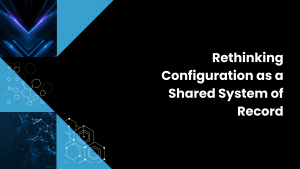
Right now, is the most interesting time in the history of the IT industry – and most risky.
On the one hand, mature systems technologies, like virtualization, high-speed system fabrics, and flash storage, provide a cost-effective and amazingly functional foundation for finally making software technologies like machine learning, AI, and advanced big data analytics work. Moreover, cloud options can speed the time from idea-to-implementation for any organization. Finally, powerful personal devices can present cloud services through remarkably intuitive and productive interfaces.
But the truth is, we’re really not limited by our imagination in IT. That’s because these data-first technologies can catalyze unprecedented technology complexity in infrastructure, application systems, and – as companies more explicitly undertake digital business transformations – overall business models, operations, and revenue-generating services. And that complexity, if left to grow unchecked, can undermine any company’s customer promises.
When technology is more deeply embedded in the business, a business’s operations are vastly more dependent on its ability to manage its technology capabilities. Pushing the state-of-the-art in digital business services is the right thing to do for most companies, because it can cut costs, enhance market engagement, and improve customer experience. But unless those efforts are accompanied by concomitant investments to improve services management practices and tooling – unless the IT foundation is strengthened, too – a business faces the very real possibility that its digital business technology stacks can topple over.
To avoid these problems, firms that want to enhance their business with cognitive digital systems must also imbue their IT foundation with similarly-powerful cognitive technologies. This is especially true for firms that can’t lift-and-shift the operational systems on which their business currently run. Simply put, given human limitations and the constant drive for greater IT productivity, adding complexity up the stack requires simplifying automation down the stack.
This is a huge challenge for many companies. Where to start, then? Our conversations with users suggest that a simple approach to introducing advanced data-first cognitive capabilities is to apply them to a few areas:
- Asset discovery and mapping. High-value digital services rarely are dependent on single pieces of software or hardware. Rather, they define networks of resources that must work together. Cognitive technologies are ideally suited to revealing these resource networks, identifying operational similarities and differences, and presenting them in human-readable formats to improve and accelerate decision making.
- Operational responsiveness. Knowing how services and resources map is crucial, but the real goal is to facilitate both continuous improvement and accurate management of digital operations. Cognitive technology can be applied to automatically respond to troubles, reveal root causes, and recommend system enhancements – in the context of both assets and services.
- Engagement workflows. In a digital business, IT-related promises are made to employees, but also partners and customers (including those made by employees to external users). Keeping these external promises is the centerpiece of any digital business. Indeed, it’s the apex of efforts to understand service/resource mappings and improve operational responsiveness. Digital services management must build upon IT management and case management practices to modernize technology-related engagement workflows. Cognitive technology can be applied to performing tasks that can be done without human intervention, presenting options to operators that require intervention, and sustaining complex relationships across all parties to an operation.
Recently, Wikibon hosted BMC – a long time leader in IT services management – on theCUBE as part of a BMC digital launch event. Helix, BMC’s cognitive services management platform, does a great job of hitting our key points. Here are some of the highlights from that conversation.


